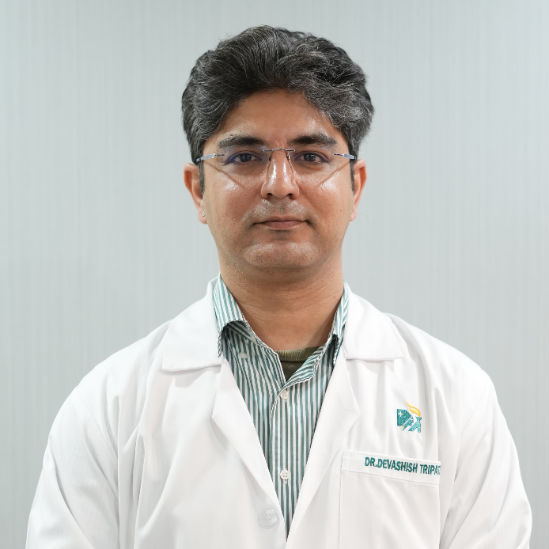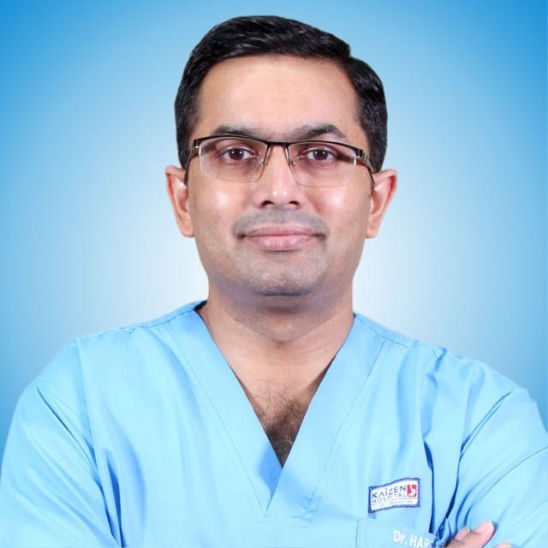Cholangiocarcinoma Overview and Treatment Options
Cholangiocarcinoma is a rare and aggressive cancer of the bile ducts. This overview covers its symptoms, such as jaundice and abdominal pain, common causes like chronic inflammation, and the latest treatment options, including surgery, chemotherapy, and emerging therapies.

Written by Dr. Dhankecha Mayank Dineshbhai
Reviewed by Dr. Vasanthasree Nair MBBS
Last updated on 13th Jan, 2026

Facing a diagnosis like cholangiocarcinoma can be overwhelming and confusing. This article aims to provide clear, compassionate, and easy-to-understand information about this condition, its symptoms, causes, and available treatment options. We’ll also share some helpful tips for managing the condition and improving overall well-being.
What is Cholangiocarcinoma?
Cholangiocarcinoma, also known as bile duct cancer, is a rare but serious type of cancer that develops in the bile ducts—the thin tubes that carry bile from the liver to the small intestine. Bile helps digest fats in the food we eat. When cancer forms in these ducts, it can block the flow of bile, leading to various health problems.
This cancer can occur in different parts of the bile ducts:
Intrahepatic (inside the liver)
Perihilar (where the bile ducts exit the liver)
Distal (near the small intestine)
Because cholangiocarcinoma is often diagnosed at a later stage, early awareness of symptoms is crucial.
Symptoms of Cholangiocarcinoma
The symptoms may vary depending on where the tumor is located, but common signs include:
Jaundice (yellowing of the skin and eyes)
Dark urine and pale stools
Itchy skin (due to bile buildup)
Abdominal pain, especially on the right side
Unexplained weight loss
Loss of appetite and nausea
Fatigue and weakness
If you or a loved one experience these symptoms persistently, it’s important to consult a doctor for further evaluation.
What Causes Cholangiocarcinoma?
The exact cause is not always clear, but certain risk factors may increase the likelihood of developing this cancer:
Chronic bile duct inflammation (such as from primary sclerosing cholangitis)
Liver diseases (cirrhosis, hepatitis B or C)
Bile duct abnormalities present at birth
Parasitic infections (common in some parts of Asia)
Exposure to certain chemicals (like thorium dioxide, used in old X-ray imaging)
Smoking and alcohol use
While some risk factors are unavoidable, maintaining a healthy lifestyle and getting regular check-ups can help in early detection.
How is Cholangiocarcinoma Diagnosed?
If your doctor suspects cholangiocarcinoma, they may recommend:
Blood tests (to check liver function and tumor markers)
Imaging tests (ultrasound, CT scan, MRI, or PET scan)
Endoscopic procedures (ERCP or cholangioscopy to examine bile ducts)
Biopsy (taking a small tissue sample for testing)
Early diagnosis improves treatment success, so don’t ignore persistent symptoms.
Consult an Oncologist for personalized tips
Treatment Options for Cholangiocarcinoma
Treatment depends on the cancer’s stage, location, and overall health. Common approaches include:
1. Surgery
If the tumor is small and hasn’t spread, surgery may remove part of the bile duct, liver, or nearby tissues.
In some cases, a liver transplant may be an option.
2. Radiation Therapy
Uses high-energy beams to kill cancer cells.
Often used before or after surgery, or to relieve symptoms in advanced cases.
3. Chemotherapy
Uses drugs to destroy cancer cells or stop their growth.
May be given before surgery (to shrink tumors) or after (to prevent recurrence).
4. Targeted Therapy & Immunotherapy
Targeted drugs attack specific cancer cell mutations.
Immunotherapy helps the immune system fight cancer.
5. Palliative Care
Focuses on relieving symptoms (like jaundice or pain) through stent placement (to keep bile ducts open) or medications.
Your doctor will create a personalized plan based on your condition.
Living with Cholangiocarcinoma: Tips for Better Management
While treatment is essential, lifestyle adjustments can help improve quality of life:
Eat a balanced diet (small, frequent meals with high-protein, low-fat options).
Stay hydrated to help liver function.
Manage fatigue with light exercise and rest.
Seek emotional support (counseling, support groups).
Follow up regularly with your healthcare team.
When to Seek Help?
If you notice persistent symptoms like jaundice, unexplained weight loss, or severe abdominal pain, don’t delay—consult a specialist. Early intervention can make a significant difference.
Need Expert Advice?
If you or a loved one is experiencing symptoms or needs a consultation, you can book an appointment with an oncologist or gastroenterologist through Apollo 24|7. Early diagnosis and expert care can help manage cholangiocarcinoma effectively.
Final Thoughts
Cholangiocarcinoma is a challenging condition, but advancements in treatment offer hope. By staying informed, seeking timely medical help, and making healthy lifestyle choices, patients can improve their quality of life and treatment outcomes.
Remember, you’re not alone—medical professionals and support networks are here to help you through this journey. Stay strong, stay informed, and take one step at a time.
(For more information or to schedule a consultation, visit Apollo 24|7.
Consult an Oncologist for personalized tips
Consult an Oncologist for personalized tips

Dr. Amit Choraria
Surgical Oncologist
18 Years • MBBS, MS (Surgery) Fellow, Surgical Oncology, Tata Medical Center (FSO) Fellow, European Board of Surgery (Surgical Oncology) (FEBS) Fellow, Minimal Access Surgery (FMAS) Fellow, Indian Association of Gastrointestinal Endosurgeons (FIAGES) UICC Fellow, Royal Marsden NHS, London, UK Visiting Scholar, Plastic Reconstructive Surgery, CGMH, Taiwan Fellow, Robotic Surgical Oncology, Vattikuti Foundation, USA
Kolkata
Apollo Multispeciality Hospitals , Kolkata, Kolkata

Dr. Sanchayan Mandal
Medical Oncologist
17 Years • MBBS, DrNB( MEDICAL ONCOLOGY), DNB (RADIOTHERAPY),ECMO. PDCR. ASCO
Kolkata
MCR SUPER SPECIALITY POLY CLINIC & PATHOLOGY, Kolkata

Dr Gowshikk Rajkumar
Oncologist
10 Years • MBBS, DMRT, DNB in Radiation oncology
Bengaluru
Apollo Clinic, JP nagar, Bengaluru

Dr Devashish Tripathi
Radiation Specialist Oncologist
20 Years • MBBS, PLAB, MRCP (UK)- General Medicine, FRCR (Oncology), Certificate of Completion of Training (CCT)- Clinical Oncology
Delhi
Apollo Hospitals Indraprastha, Delhi

Dr. Harsh J Shah
Surgical Oncologist
15 Years • MS, MCh (GI), DrNB (GI)
Ahmedabad
Apollo Hospitals Gandhinagar, Ahmedabad